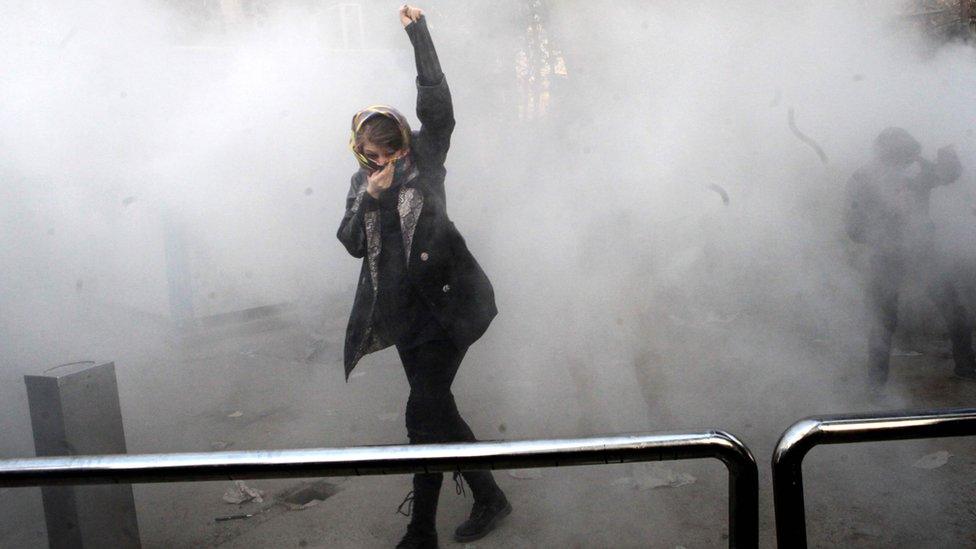Why thousands of young people are protesting in Iran
- Published

"I thought it would just be a one-day protest and that it would just disappear," says British-Iranian Ariane Moshiri.
Anti-government protests, mainly involving young people, have spread to more than 50 towns across Iran.
Hundreds of people have been arrested and 21 people have been killed.
The head of Iran's Revolutionary Guards has now said the protesters are "defeated".
Ariane's parents left Iran because of the Islamic revolution almost 40 years ago
Although the reasons for the protests have been building up for a few years, the timing surprised Ariane, 23, because there was an election only a few months ago.
"It really came out of the blue," she told Newsbeat.
"You thought that everyone had had their voice heard at the election", she said.
President Rouhani was re-elected in May partly on the promise that he would bring down unemployment, which affects a lot of young people.
It was after he signed an agreement with six countries, including the UK, where he promised to limit Iran's nuclear programme in exchange for trade with some of the world's biggest countries.
Footage shows improvised roadblocks and street fires
But Iranians haven't really felt the economic benefits of the agreement, which is why many young, working-class men began protesting last week.
"It quickly became apparent that it wasn't just about socio-economic matters - it was taking on a political edge as well," Ariane says.
"Protestors are talking about a lack of prospects, no jobs for them, the fact that many live off payday loans.
"You see slogans asking: 'Why are we spending money in Syria? Why isn't the government spending money on me?'"
She adds that there could be comparisons to the UK "to a certain extent", as the Iranian government began cost-cutting austerity measures in 2013.
"There's been a lot of cutback in government development projects."
"It tells you that regardless of what country you're in, some people will have the same pressures."
The messaging app Telegram, used by millions of Iranians, has been blocked by the authorities
But that's where the comparisons end.
Popular sites including Facebook, Google and Twitter are blocked in Iran.
Telegram, a messaging app which was allowed in the country, has been suspended to try to stop the organisation of protests and the sharing of protest videos.
"In Iran, they say that everyone has the right to protest, but that's a bit of a lie because you've had 450 arrests," Ariane said.
"The main commonality is that we're all under pressure economically to a certain extent.
"But at least in the UK, we have the right to freely express our discontent."
Find us on Instagram at and follow us on Snapchat, search for